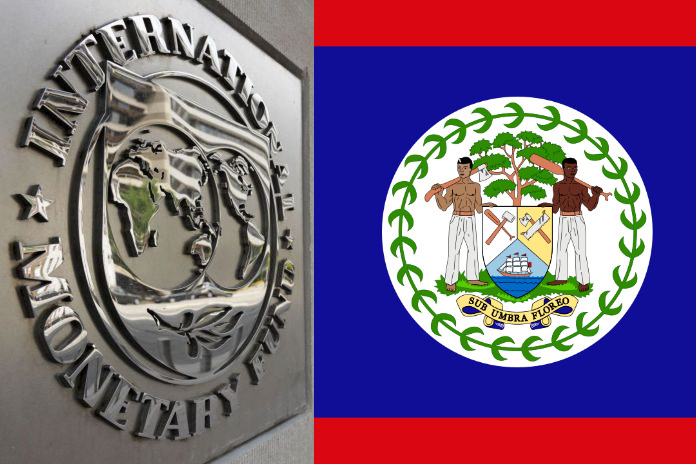WASHINGTON, USA – The executive board of the International Monetary Fund (IMF) concluded the Article IV consultation[1] with Belize and endorsed the staff appraisal without a meeting on a lapse-of time basis.
Real GDP growth and inflation moderated in 2023. After growing by 8.7 percent in 2022, real GDP grew by 4.7 percent in 2023, led by tourism, construction, retail and wholesale trade, transport, and business process outsourcing. Inflation declined from 6.3 percent in 2022 to 4.4 percent in 2023, driven by lower prices of transport and utilities, partly offset by higher food inflation.
The fiscal position remained strong, but debt dynamics have become more challenging. The overall fiscal deficit widened due to a narrowing of the primary surplus and higher interest payments on the blue loan and other external debt. Consequently, after the acquisition of the Port of Belize and the settlement of outstanding litigations with a foreign investor, public debt declined slightly from 67 percent in 2022 to 66 percent of GDP in 2023.
Real GDP growth and inflation are expected to moderate further going forward. Growth is projected at 3.4 percent in 2024 and 2.5 percent from 2025 onwards as the output gap closes, while inflation is expected to fall to 1.3 percent over the medium term in line with the expected decline in commodity prices and global inflation. The primary balance is projected to remain at 1.2 percent of GDP from FY2024 onwards under current policies, but public debt is projected to decline slowly and remain above 50 percent of GDP through 2034 due to slower nominal GDP growth and high global interest rates. Important risks to the outlook remain, including higher global food and fuel prices, higher-for-longer global interest rates, and climate related disasters.
Executive board assessment
Belize’s key policy priorities include reducing public debt to 50 percent of GDP by FY2030 by raising the primary fiscal balance to 2.0 percent of GDP from FY2025 onwards; increasing priority spending on infrastructure, targeted social programs, and crime prevention, financed with additional revenues and expenditure reprioritization; implementing structural reforms to boost growth and make it more inclusive and resilient to natural disasters; and remaining vigilant to financial stability risks.
Reducing public debt to 50 percent of GDP by 2030 would entrench debt sustainability and help build sufficient fiscal buffers. This debt level would be consistent with that in investment-grade emerging market economies and would keep it below the 70 percent of GDP target in the authorities’ 2021 Medium-term Recovery Plan with 95 percent probability over the medium-term given historical shocks. Reaching this debt target requires implementing 0.8 percent of GDP of fiscal consolidation to raise the primary balance to 2 percent of GDP from FY2025 onwards. Anchoring this plan in a well-defined medium-term fiscal strategy and preparing for the adoption of a Fiscal Responsibility Law with well-designed fiscal rules would enhance its credibility.
Revenue and expenditure measures can raise the primary surplus and fund additional spending on infrastructure, social programs, and crime prevention. Broadening the GST base, raising excise taxes, rebalancing manufacturing taxes, and strengthening revenue administration can raise revenue by 2.2 percent of GDP, while reforming the PPPO could lower government spending by 0.1 percent of GDP. Using these savings to increase the primary surplus (0.8 percent of GDP) and expand priority spending (1.5 percent of GDP) would boost medium term growth and make it more inclusive and resilient to natural disasters.
Priority spending includes enhancing roads, water, and sewer systems; expanding renewable energy generation and storage; subsidizing childcare and training for vulnerable women to enhance female labor force participation; expanding targeted transfers to protect against food insecurity; and investing in climate-resilient infrastructure.
Improving the business climate and developing a disaster resilience strategy (DRS) are also key to increasing medium-term growth. Priority areas to improve the business environment include easing access to affordable credit for SMEs, including by establishing a credit bureau and a collateral registry; advancing the digitalization of the land and business registries; and improving the firms and government services. Developing a DRS that focuses on strengthening structural, financial, and post-disaster resilience and is based on a consistent macroeconomic framework would help unlock funding for climate mitigation and adaptation and reduce output volatility.
Increasing the level of international reserves would strengthen the currency peg. Belize’s external position is assessed as stronger than implied by medium term fundamentals and desirable policies. However, international reserves are projected to remain below the ARA metric. Increasing the level of international reserves by implementing fiscal consolidation and structural reforms would strengthen the currency peg, especially given the projected rise in external financing needs when the repayment of the blue loan starts in 2032.
Limiting central bank financing of the government, preserving financial stability, and strengthening the AML/CFT framework are important priorities. Gradually reducing central bank financing of the government would reduce excess liquidity and help develop the local capital market. The central bank must remain vigilant to financial stability risks, keeping vulnerable institutions under enhanced supervision and requesting recapitalization when needed. The authorities should continue strengthening the AML/CFT framework and its enforcement, especially in the IFS.
IMF Communications Department





